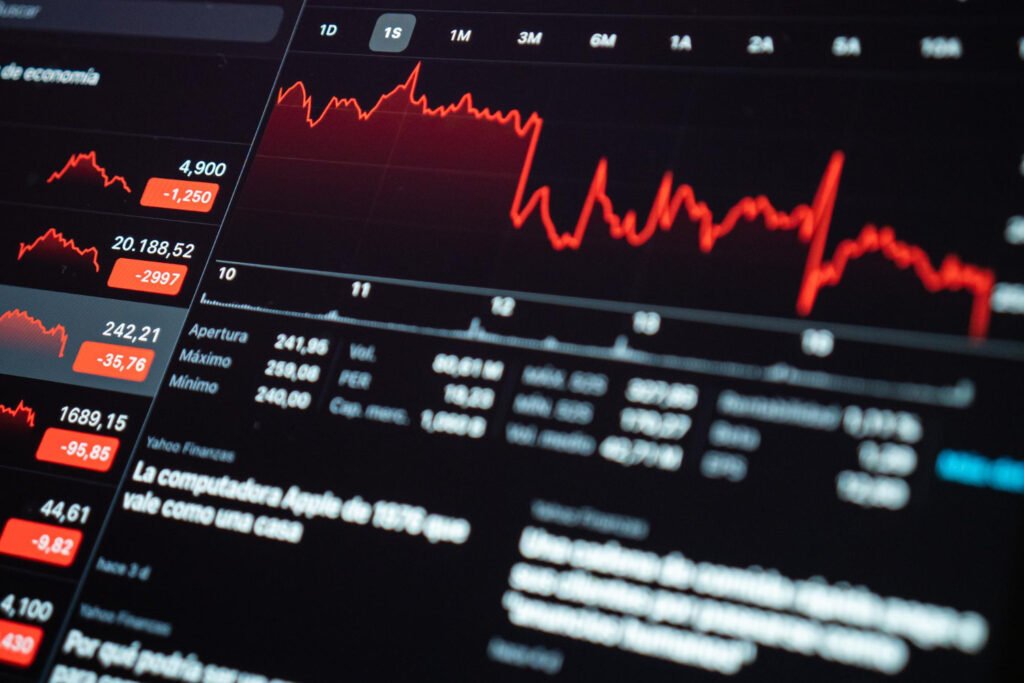
The global investment market has been the most unstable this year, and understandably, market investors are looking out for the best opportunities to evade these fluctuations. The finance sector has been a series of significant events, from the crypto market crash to stocks plummeting and giant currencies like the dollar fighting for dominance. When issues like these recur, the relevance of safe-haven assets becomes a topic of conversation. If you’re a UK investor looking for the best investments to hedge against current inflation, this article might help point you in the right direction. Here’s a detailed overview of how UK indices and raw materials can help you build better portfolio resilience in these trying times.
Overview of the UK Indices Market
Index investments have been a significant financial instrument for years. They are a collection of assets, like stocks and bonds, that investors use to track the performance of specific sectors and companies in the market. The popularity of these assets is due to no other reason but their low-cost nature and convenience, amongst many others. The UK indices market has always offered the same global appeal. Notably, the FTSE 100, FTSE 25,0, and FTSE All-share are the key benchmarks for tracking the London Stock Exchange (LSE) performance.
The FTSE 100 encompasses the top 100 blue-chip companies with global exposure, while FTSE shows the following 250 companies, mostly mid-cap and domestic-focused businesses, for investors to watch. All-share features all categories, including 100, 25,0, and the smaller assets to watch. A report and detailed analysis by Curve.eo shows the FTSE 100 performance over the last 25 years. Its average returns in recent years were most notable, with 11.7% annual gains in the previous year and about 85.8% in the last 5 years. The UK index market has historically done so well and has proven a worthy asset for building a resilient portfolio.
The Role of Indices in Portfolio Stability

The internet is swamped with so much relevant information today, and what this means is that everyone is exposed to hidden gems in the market. The UK index market is one of these gems for many reasons. If you’re trying to build a strong portfolio today, here are ways these assets could help stabilize your portfolio.
Global Exposure
The FTSE 100 includes the 100 largest companies listed on the London Stock Exchange by market capitalization. These companies earn most of their revenue internationally and come with considerable changes to benefit from this position through their performance. Some stability comes with this because investors can be assured that these businesses are legit and will be around for a long time. Some of these companies, like Barclays plc (BARC), Admiral Group (ADM), and others, have been around for some time and have earned the trust of market investors. At the same time, they come with lower volatility compared to small-cap indices. Investing in assets like these comes with some assurance, even amidst market fluctuations.
Sector Diversification
UK indices cover sectors like energy (e.g., Shell, BP), the Financial Industry (Lloyds, Barclays), Consumer goods, and healthcare. This in itself is an opportunity to diversify and hedge against risk. For instance, the first half of 2025 has been unstable, and tech stocks have been hit the most. Commodities, on the other hand, have been thriving. Investing in indices allows you to test the waters, weigh your options, and have a piece of every market possible. If one doesn’t guarantee a win, the other will. Another major perk is that index investors can gain access to these investments through spread betting, where traders can speculate on an index’s price movement. While doing this, they could explore across the FTSE 100, 250, and several other categories of securities. They also get to spend less capital, since it works on leverage and evades taxes.
UK Raw Materials and Why They Matter
The commodities sector in the UK is one of the most prosperous, and it’s pertinent to discuss how it could also be a great addition to your portfolio. The major ones are precious metals, steel, aluminum, forest products, and construction. In 2024, it was estimated to have a nominal value of $1.701.00 billion, according to Statista. Commodities have also had a great run this year, with gold and crude oil being some of the best performers. Let’s explore some of the unique benefits they offer
Strong Inflation Hedge And Beneficiary of Geopolitical Instability
It’s common knowledge that inflation is one factor affecting market investments. Political issues like the US trade war and the Middle East wars instigated some of the most significant financial market instability this year. While forex markets, stocks, and cryptocurrencies battle this volatility, commodities always have a better inflation hedge. This is because, on the contrary, their prices often rise along with inflation. Gold, for instance, has always been a safe-haven asset, that is, an investment traders run to in times of instability. Unstable market conditions and geopolitical instability contribute to the growth of raw materials because demand often skyrockets.
At the same time, this is the period most investors look out for safer securities to put their money into. Commodities might be your best bet if you’re trying to hedge against inflation. When this happens, its price skyrockets. Another reason this is so is that commodities are physical assets with an inherent value that is relevant regardless of economic condition.
Prioritising a Well-Rounded Portfolio
UK indices and raw materials are significant assets for a stable and diversified portfolio and could be great additions. Look at the FTSE 100 for less volatility, and you could also consider small-cap companies if you have less capital. The commodities market has a lot of options for you, but Crude oil and gold are all the buzz right now. Do your research and find the right combination for your portfolio.
